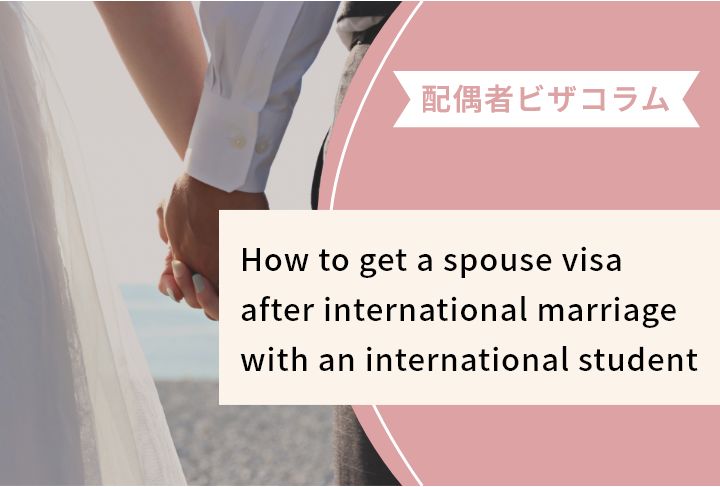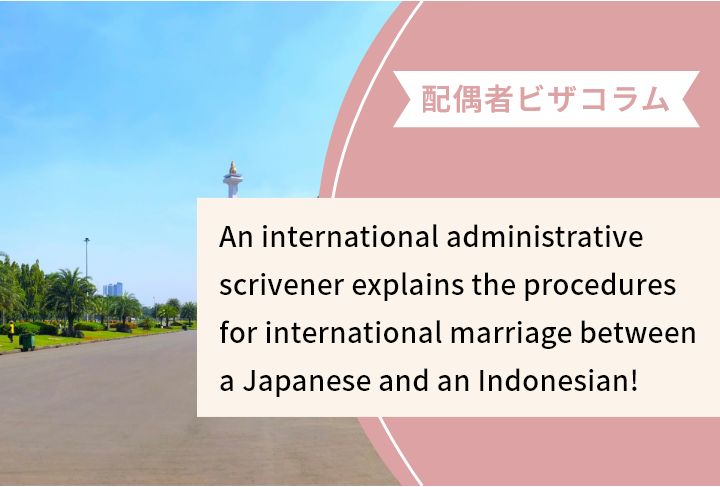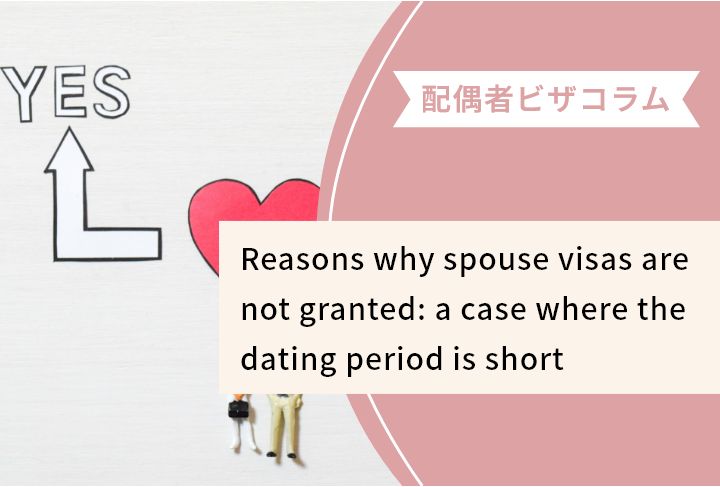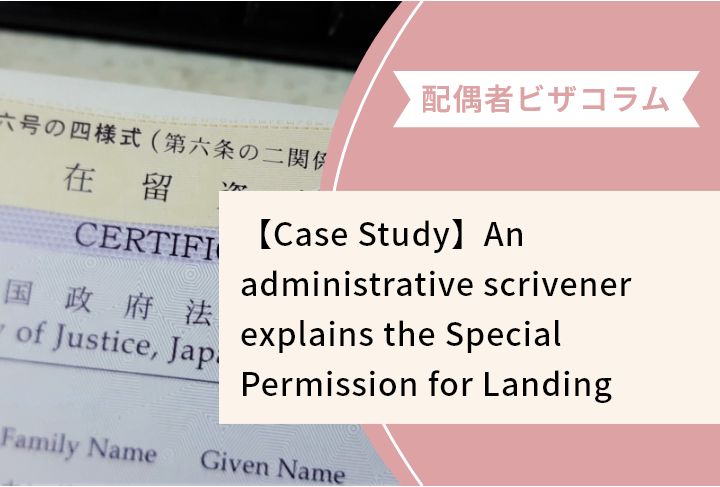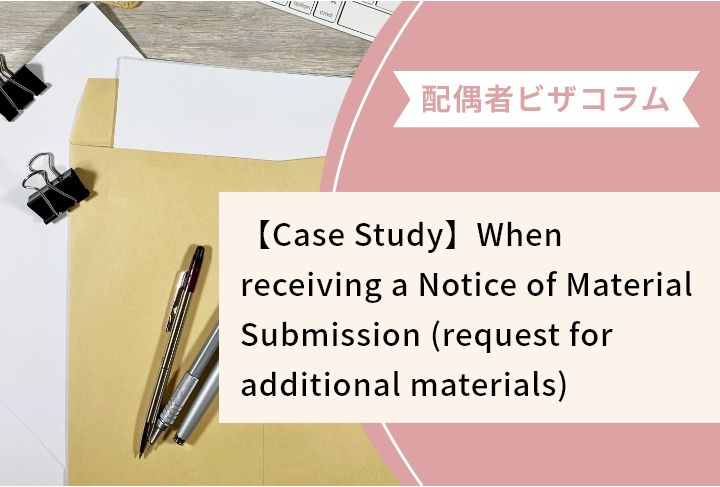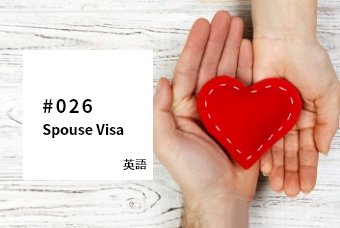What are differences between a marriage visa and a spouse visa?
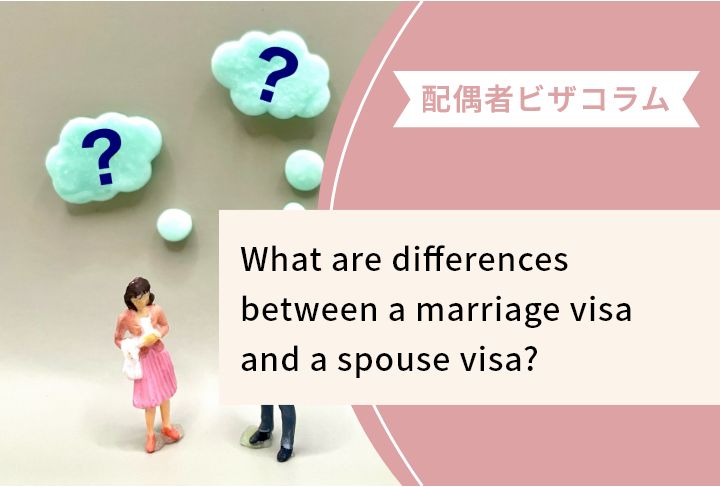
We have asked about differences between a marriage visa and a spouse visa several times.
So, in this article, we would like to focus on a marriage visa and a spouse visa.
Index
1. What is international marriage?
As more foreigners are coming to Japan recently, we often hear the word “international marriage.” It is also not so rare anymore that coworkers or spouses of friends are foreigners.
It’s a little old information, but according to the Vital Statistics in 2016 published by MHLW, marriage between a Japanese and a foreigner was formed by 21,180 couples, which means 1 married couple out of every 29 married couples is international.
In next section, we explain about visas for those who had international marriage.
2. Are there any differences between a marriage visa and a spouse visa?
We have asked about differences between a marriage visa and a spouse visa several times.
Are there any differences between a marriage visa and a spouse visa?
Actually they are the same. They both mean visas obtained after international marriage.
When someone says “marriage visa” or “spouse visa,” the meaning can be different depending on the type of visa or nationality of the spouse of the foreigner who’s getting a visa.
For example, if a foreigner marries to a Japanese, the foreigner is granted a visa called “Spouse or Child of Japanese National,” and if a foreigner marries to a permanent resident, the foreigner is granted a visa called “Spouse or Child of Permanent Resident.” Like that, there are different types of marriage visas/ spouse visas.
In other words, marriage visas and spouse visas are general terms for visas obtained after international marriage, and each spouse is granted a different type of visa depending on nationality and visa of his wife or her husband.
In the next section, we will go through attributions of spouses of foreigners and types of visas that foreigners can obtain after international marriage.
3. There are unexpectedly many types of visas for spouses!
Currently, the Immigration Act provides 33 types of visas broadly.
Further, a designated activity visa, one of the 33 visas, is classified into 49 types, and a long-term resident visa is classified into 8 types.
Here, we would like to take a look at the visas which can be obtained after international marriage.
| Attribution of spouse | Type of visas that can be obtained |
| Japanese | Visa for spouse or child of Japanese national |
| Permanent resident | Visa for spouse or child of permanent resident |
| Lon-term resident | Visa for Long-Term Resident |
| Holder of a visa for professor, artist, religious activities, journalist, highly skilled professional, business manager, legal/accounting services, medical services, researcher, instructor, engineer/specialist in humanities/international services, intra-company transferee, nursing care, entertainer, skilled labor, specified skilled worker type 2, cultural activities, or student (*1) | Dependent visa |
| Diplomat | Diplomat visa |
| Official | Official visa |
| Highly-skilled professional | Dependent visa or designated activity visa |
| Designated activities | Visa for Designated Activities (*2) |
*2: Limited to cases which fall under items (3), (4), (7), (18), (19), (23), (24), (30), (31), (38), (41), (45), (47), or (49) of the public notice concerning designated activities.
As you can see from the table above, there are many types of visas that can be obtained after international marriage.
To provide an additional explanation regarding the table above, there is a visa which a partner of same-sex marriage can get.
For the details, please refer to “【Case Study】Relationship between same-sex marriage and status of residence.”
Please note that there are some cases where a dependent visa is not granted even after international marriage.
To be more specific, a dependent visa is not granted if the spouse of the foreigner who is getting a visa is on a diplomat visa (a diplomat visa is granted in this case), official visa (official visa is granted in this case), visa for specified skilled worker type (1), technical intern training visa, temporary visitor visa, or trainee visa.
Additionally, as stated in the table above (see *1), a dependent visa is not granted to a foreigner whose spouse has a student visa which falls under item (1)(c) of the Ministerial Ordinance to Provide for Criteria.
The typical example of item (1)(c) of Ministerial Ordinance to Provide for Criteria is a student who studies at Japanese language school.
4. Summary
In this article, we talked about the differences between a marriage visa and a spouse visa, and focused on the meaning of international marriage and types of visas for spouses.
You were probably surprised as there are so many types of visas for spouses.
I hope you now understand that depending on the status of each spouse, the type of visa the spouse can get is different.
However, even after international marriage, not everyone can get a visa.
If the relationship lacks substance, or financial situation is not solid enough to continue marriage life stably, a spouse visa may not be granted regardless of fulfillment of formal requirements.
Since there are number of types of spouse visa, you should confirm the requirements of the visa which you aim to apply for in advance before applying to the immigration office if you consider applying on your own.
We provide free consultation services for those who had international marriage.
We have staff for English, Chinese, and Vietnamese, so you can consult in your own language.
When you contact us, please let us know if you wish to consult in your language.








